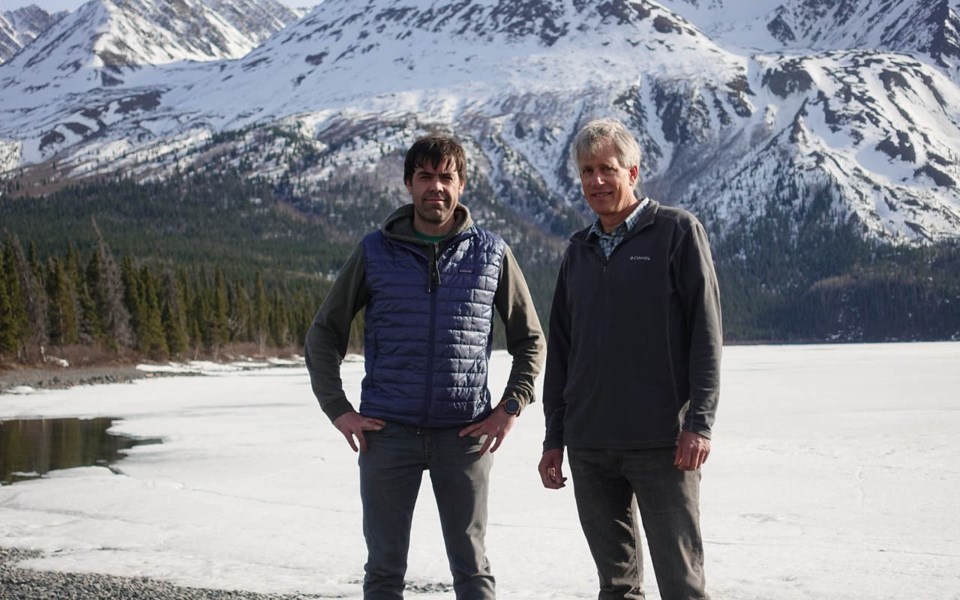It's well known that residents of the Sea to Sky corridor have a healthy appreciation for mountain environments. For many, it's what drew them to the region in the first place.
That sense of wonder, it turns out, is felt around the world, as evidenced by the astonishing popularity of a relatively new online course dedicated to studying them in-depth.
Developed by two academics at the University of Alberta (U of A), Mountains 101 is currently the most popular science-related Massive Open Online Course (MOOC) in the world, with over 25,000 participants from some 170 countries since it was released in 2017.
The class—which is free to the public—touches on a wide range of subjects, from the cultural significance of mountains to various societies, to the geological origins of mountain ranges.
"Given that mountains are such a dynamic landscape and are currently undergoing such rapid change, (it's been) a really cool, timely and special thing to be part of," said Zac Robinson, a U of A historian focused on the Canadian Rockies and Columbia Mountains.
Robinson co-teaches the class with David Hik, a terrestrial ecology professor who now teaches at Simon Fraser University.
The class traces back to an informal, interdisciplinary meeting of U of A faculty in which mountain environments, and people's relationship to them, were discussed.
In 2012, four members of the group—Hik, Robinson, along with physiologist Craig Steinback and glaciologist Martin Sharp—began offering the class at U of A, drawing students from a wide range of backgrounds.
The class proved popular, prompting them to explore the possibility of turning it into a MOOC. A recent development in distance education, MOOCs offer academic courses via the internet, often for free, and are seen as a way of democratizing higher education.
"I think the MOOC space is one that evolved as a very important place for post-secondary institutions around the world (to be able to) offer access to high-quality learning opportunities for free, which is probably the way publicly funded universities should work," said Hik.
Prior to completing the course material, the pair knew they had something big on their hands. A short teaser for Mountains 101, which features the pair discussing the content over stunning mountain landscapes and music, quickly amassed millions of views.
According to Robinson, the reception was both a delight and kind of scary. "We were kind of at the front-end of putting this thing together," he said. "It just went viral."
In developing the course, Hik said they were forced to rethink their pedagogical approach, as they felt a standard PowerPoint presentation and some voiceover simply wasn't going to hold people's attention.
The pair ended up going with a documentary-style course, with footage shot in national parks. The course also includes quizzes and interactive features aimed at testing knowledge retention.
"You're not just passively sitting and watching," said Robinson. "You sort of have to be engaged, and at the end of each lesson, there is a really cool interactive map ... where you have to identify the various peaks and where they are in the world."
The class is broken down into 12 sections, allowing students to set their own pace—they can binge it
like Netflix, or set aside some time every week to complete it. "Most folks will take a few months to slowly move through the stuff," said Robinson.
The course cost around $500,000 to produce, with the majority of funds coming from the U of A, explained Hik. To make it work, Hik and Robinson sought out a raft of in-kind support from organizations such as Travel Alberta, The Alpine Club of Canada and Parks Canada.
Parks Canada, noted Robinson, facilitated access to researchers, and filming on-location shots in national parks.
"If we needed something or wanted something specific, they would send their folks out with GoPro cameras," he said.
With mountains feeling an outsize effect when it comes to global warming, the theme of climate change weaves through the course.
"What's interesting to me—and this is a really hopeful thing, I think—is that mountains as a landscape have never been so globally adored as they are presently. Because they are valued, almost globally, there is hope that this is one place that can affect people to want to make positive changes in the world," said Robinson, noting the "rapid changes" mountain ecosystems are now experiencing due to climate change.
With students around the world—a group of 30 is currently enrolled in Pakistan—Robinson and Hik are currently in the process of developing a follow-up course, which will likely take the form of three smaller mini-MOOCs.
That will likely come as good news to those who have finished the class. According to Robinson, the number one comment they get from students who complete it is, "When is 201 coming out?"
To sign up for Mountains 101, visit ualberta.ca/admissions-programs/online-courses/mountains-101. New courses begin the first Monday of every month.




